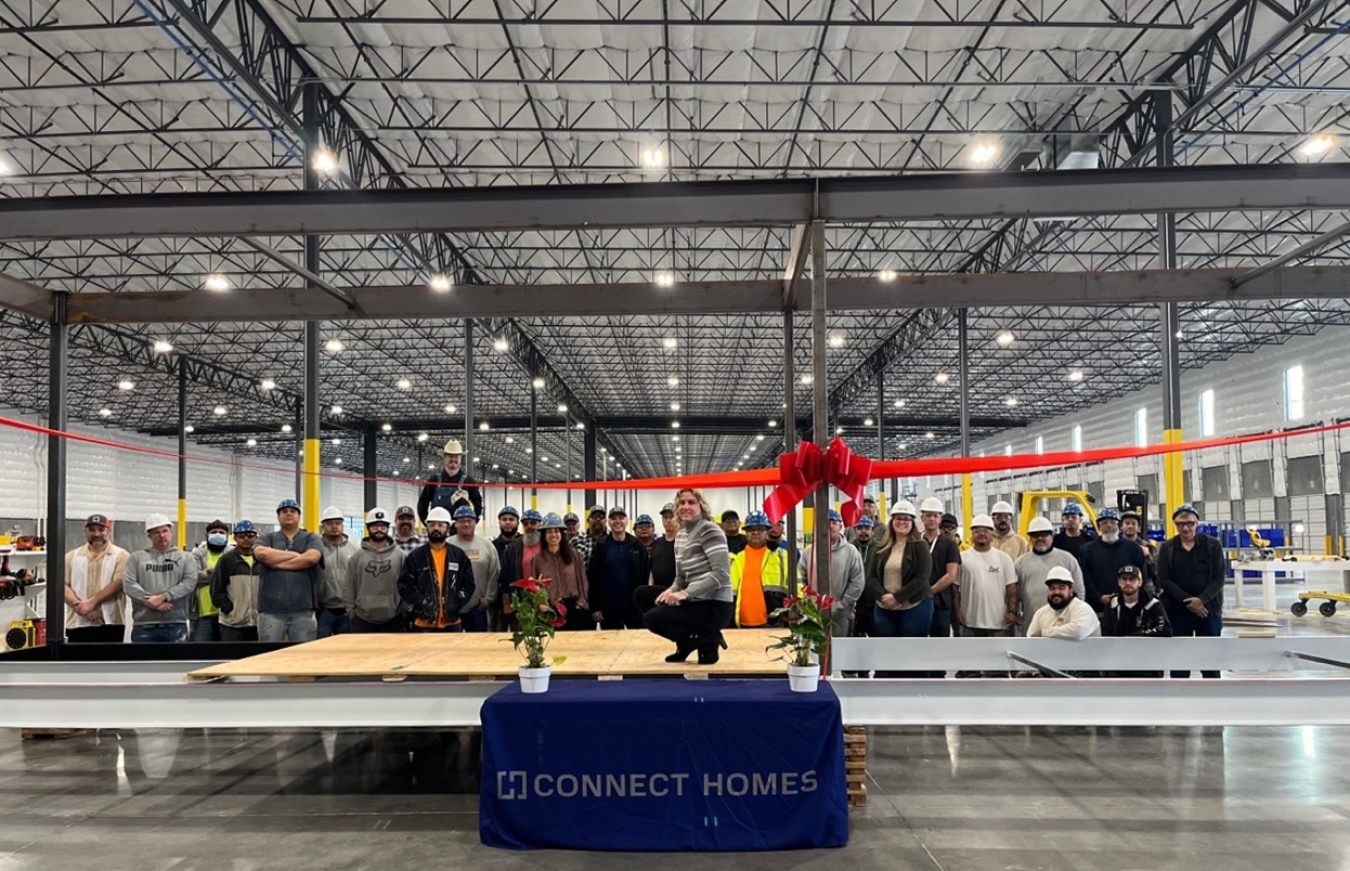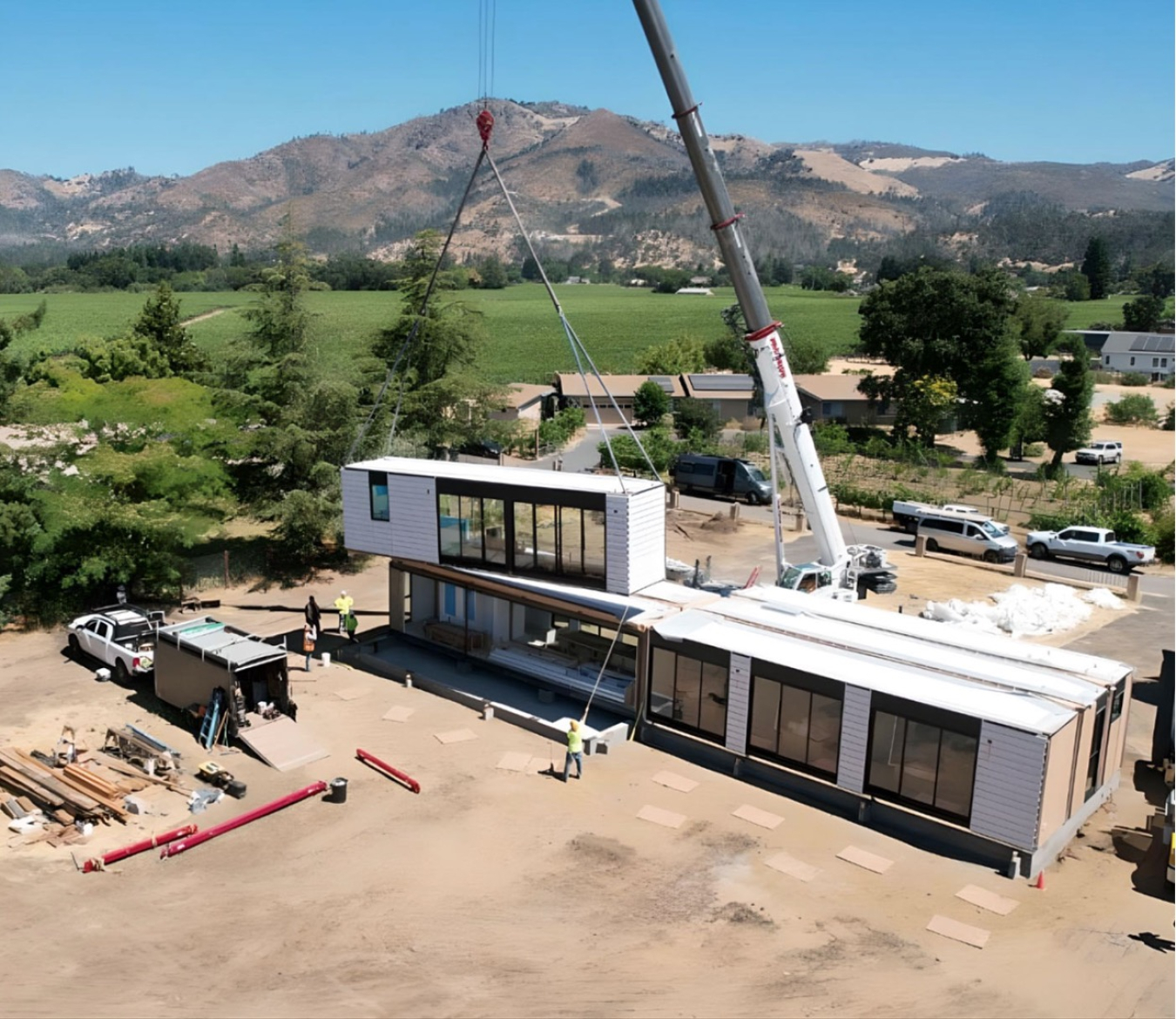
About Connect Homes
Connect Homes is a modular home manufacturer that uses industrialized construction techniques to build single-family, low-rise multifamily, and supportive housing that is more affordable and efficient than traditional construction.
Challenge Addressed
Industrialized construction techniques hold the potential to increase the speed and scale of building decarbonization, not only for buildings themselves, but for their construction processes as well. To improve prefabrication and on-site construction efficiencies, Connect Homes needed to optimize their production sequences and factory layout.
Technical Assistance Support Provided
The National Renewable Energy Laboratory (NREL) partnered with Connect Homes to develop a comparative analysis framework to model and optimize factory operations as well as estimate process and product emissions. NREL also pilot tested the model and framework using representational factory data from Connect Homes.
Using representational data from their San Bernadino, California, factory, the team was able to develop the desired framework that allowed simulation for three different production sequence variations. The framework developed between the two parties will help simulate production sequence variations and factory layouts to identify optimal layouts for time management, cost, and operational-process emissions metrics.
Additional support was provided by the Advanced Building Construction (ABC) Collaborative, which advised Connect Homes on innovative project financing techniques and streamlined approvals and inspections, all of which can typically create major project bottlenecks. The ABC Collaborative also discussed relevant Collaborators working in the accessory dwelling unit space as well as product space-conditioning strategies and systems approaches.
Comments from Connect Homes
“NREL and the ABC Collaborative’s technical assistance has helped Connect Homes understand the bigger picture of how building performance and decarbonization can relate to product, process, platform, and factory efficiencies—all while helping us develop tools that optimize our modular prefab approach,” said Gordon Stott, Co-Founder of Connect Homes. “At the tool level, their assistance is helping us leverage an existing building information modeling platform to better understand carbon impacts at the design phase. At the product level, our collab led to a grant-winning prefab product that will make the delivery of zero-carbon solutions more efficient. And at the factory level in our new, expanded Mesa, AZ facility, their expertise has impacted how we approach building multiple products at the same time.”

This framework will be used for Connect Homes’ recently awarded California Energy Commission Grant to develop modular construction designs and production innovations for factory integration of several new decarbonization technologies, including factory-based installation of photovoltaics, energy storage systems, and all-electric equipment. Connect Homes and NREL are also continuing to collaborate using data from Connect Homes’ new factory in Mesa, Arizona. This new, larger factory will act as a test facility to explore product and process decarbonization strategies at a larger scale.
Technical assistance is available to help enhance the performance, productivity, energy efficiency, and carbon savings of your industrialized construction project. Contact abc@ee.doe.gov to learn more.
The ABC Collaborative brings together a diverse network of incumbent and emergent buildings sector actors across manufacturing, construction, real estate, development, and related areas. The Collaborative works to accelerate the uptake, scaling, and mainstream adoption of ABC while supporting—and leveraging—modernization of the U.S. construction industry.
Interested in learning more or joining? Contact the ABC Collaborative.
About the ABC Initiative
The ABC Initiative, led by the Building Technologies Office , integrates energy efficiency and advanced technology solutions into industrialized construction processes to drastically increase the speed and scale of high-performance, low-carbon building retrofits and new construction.
.....
Page last updated: October 10, 2024

